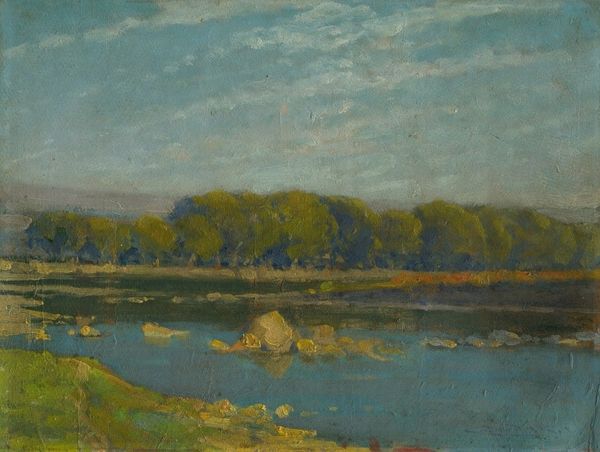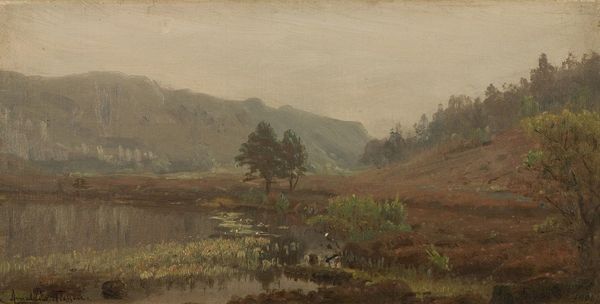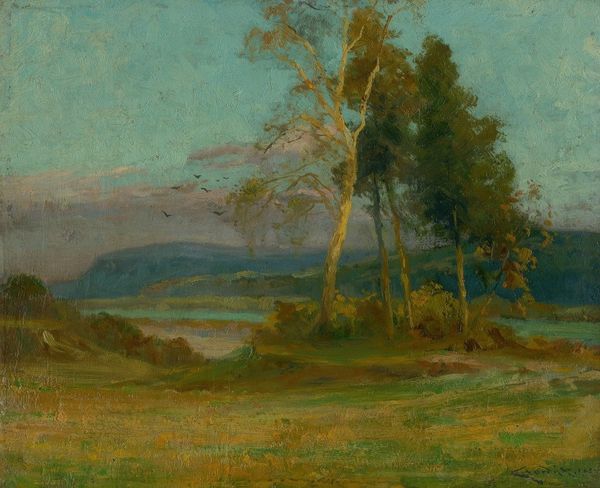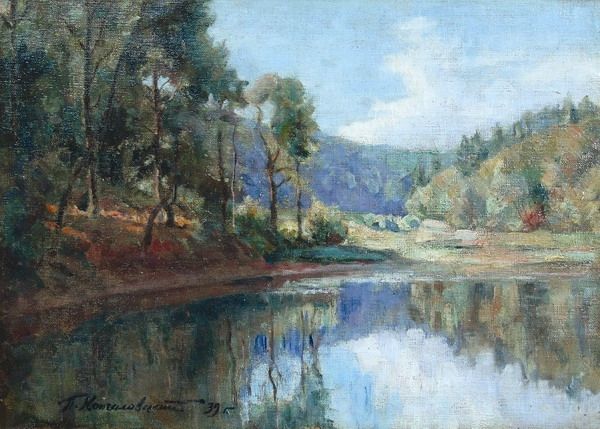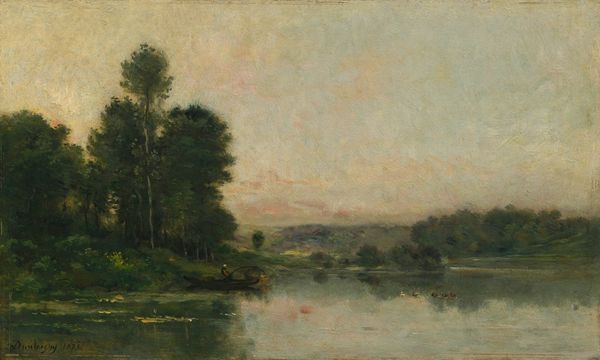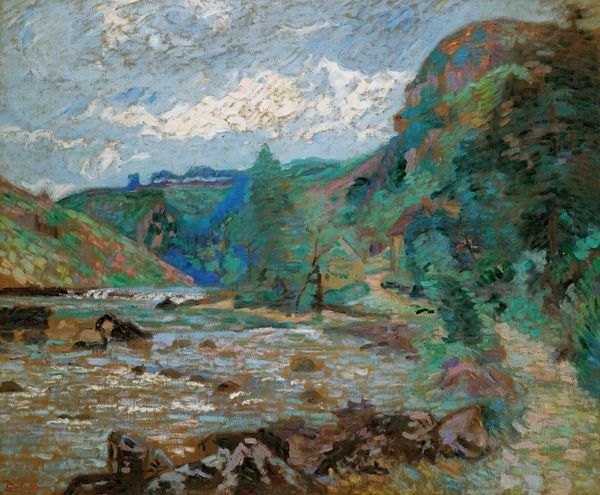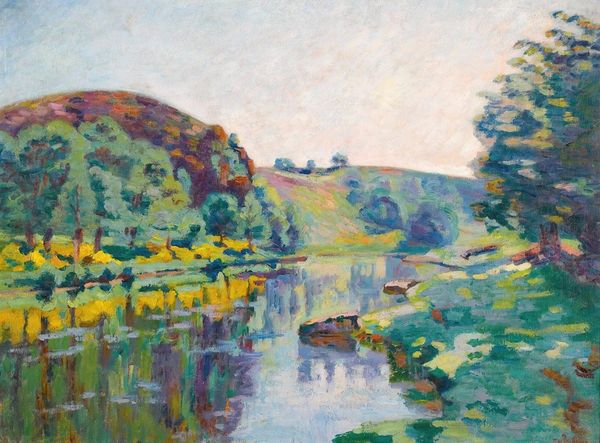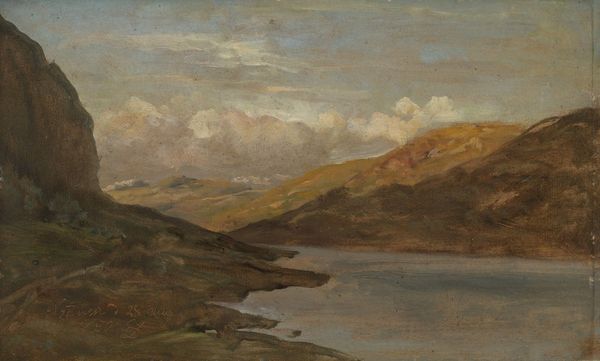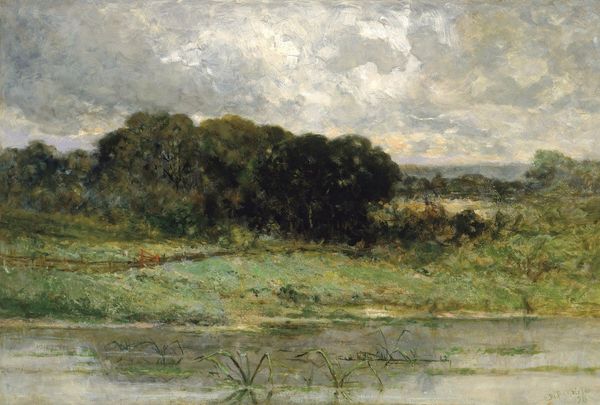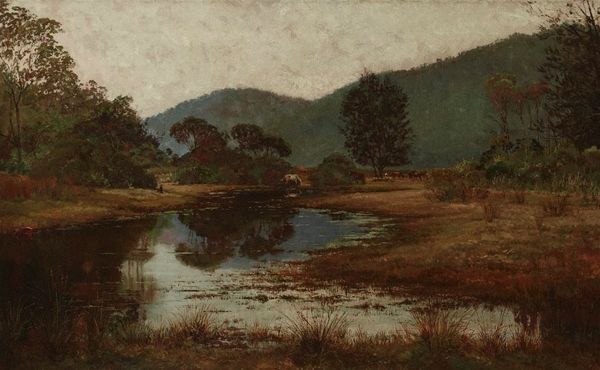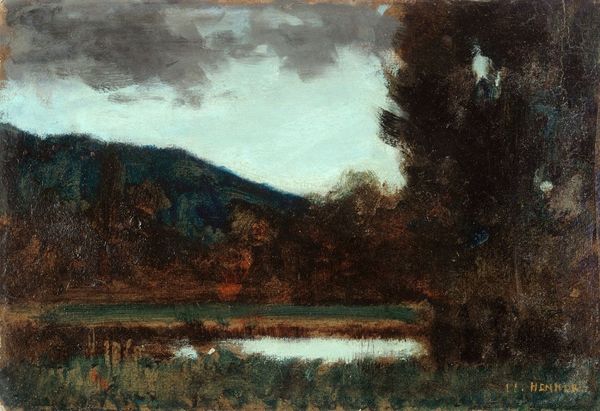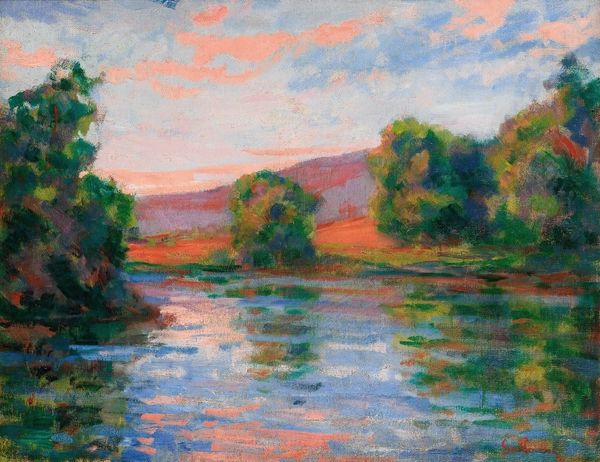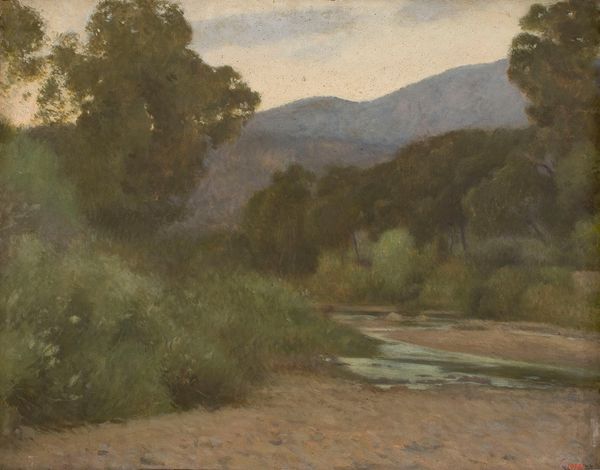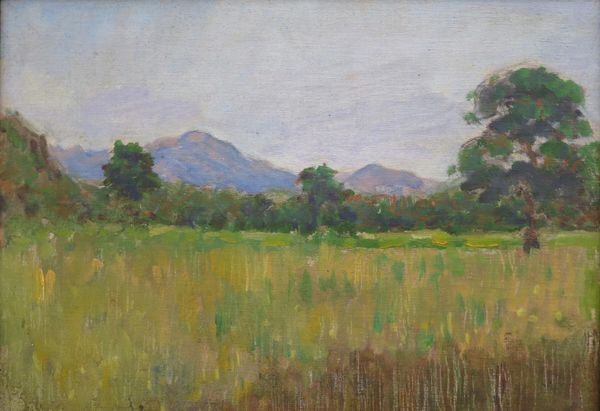
Copyright: Public Domain: Artvee
Curator: What a refreshingly subtle palette. It almost feels like a faded memory. Editor: I agree, there's a wistful quality to it. Let's tell our listeners a little about what they're seeing. This is "Summer Landscape from Košice" painted by Ľudovít Čordák around 1920. He was clearly working en plein air, capturing the light and atmosphere directly onto the canvas with oil paint. Curator: The brushstrokes are so immediate, like fleeting impressions of the landscape rather than a detailed record. The greens are especially interesting to me. Those clumps of trees become symbols for something wilder, something untamed just at the edge of civilization. Editor: Civilization is present, but at a distance. If you look closely at the horizon, you'll notice suggestive architectural features almost blurred out, as if about to be swallowed by nature. The muddy banks in the foreground and the way the artist plays with reflected light, those things situate us within a working agricultural landscape of interwar Central Europe. Curator: The entire scene resonates with a deeper symbolism. That watery landscape could easily suggest a threshold, that in-between space where tangible reality fades into dreams and nostalgia. What sort of role do you see landscapes playing in Central European cultural memory? Editor: Landscape painting, particularly around this time, played an outsized role in solidifying regional identities, which often tied directly to political aims. This kind of scenery was a crucial part of building public sentiment toward nascent notions of nationhood. It was critical in defining "us" versus "them." Curator: Ah, the eternal dichotomy of civilization and wilderness rendered in gentle brushstrokes. The water, earth, sky—those all operate on different levels of cultural and psychological encoding. Editor: And even without that specific knowledge, one can still feel the inherent peace, if fleeting, of this scene. Curator: Precisely. The enduring appeal is universal, resonating across contexts. I think our listeners should step closer and ponder those questions of land and memory themselves. Editor: Indeed, a reflective pause here may reveal unexpected echoes.
Comments
No comments
Be the first to comment and join the conversation on the ultimate creative platform.
